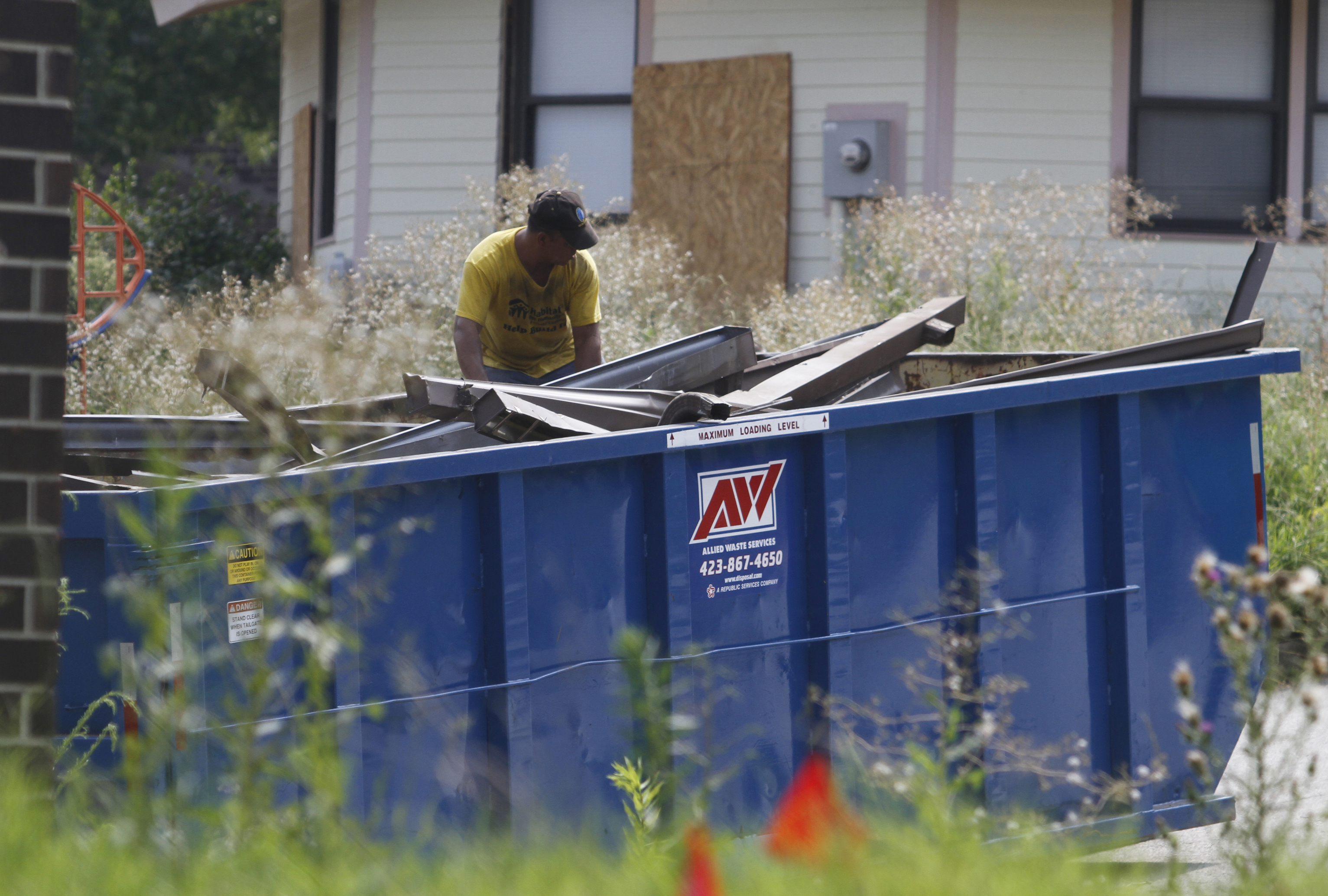Another public housing site will be demolished any day now.
"It seems like we're abandoning poor people, but we're not," said Eddie Holmes, chairman of the Chattanooga Housing Authority board of directors. "We're creating opportunity for them to excel, to move on to better themselves."
After it's torn down starting today or Tuesday, Edward Steiner Apartments off Chamberlain Avenue will be replaced by an $8.8 million, 48-unit mixed-income housing development. Unlike Steiner, which had 50 units of public housing, the new site - called Maple Hills - will have just 33.
The remaining 15 units will go to residents with low-income housing tax credits. That federal tax credit allows investors to help finance the housing.
Construction is expected to begin in September and is scheduled for completion a year later.
And unlike at Steiner, all residents living at the new site who are not elderly or disabled will be required to have jobs or be in job-training programs, a key component of what is known as workforce housing, said Mark Straub, senior development manager with Pennrose Properties, CHA's development partner.
Other CHA properties that have workforce housing include the Villages at Alton Park, Greenwood Terrace Apartments and the Oaks at Camden.
"I'd like to see all of our scattered sites become mixed-income workforce housing. We've got to change the [public housing] paradigm somehow," Holmes said.
The 50 families that once lived at Steiner have been relocated to other public housing sites and to Section 8 housing.
Janet and I want to affirm our support for the Duggar family. Josh’s actions when he was an underage teen are as he...
Posted by Mike Huckabee on Friday, May 22, 2015
Residents who move into the new development will be encouraged to participate in the housing authority's Family Self Sufficiency program, which helps residents save money and become better prepared to leave public housing.
Steiner will be the fifth public housing site demolished since 2001 in Chattanooga. The number of public housing units in the city has shrunk from 3,692 in 1999 to 2,952 this year.
Anita Pickett is resident association president at the Harriet Tubman public housing complex, which also is scheduled for possible demolition.
She is concerned about the decrease in public housing and lack of choices for low-income residents, but said residents don't have much input in the decision.
"What can you do?" Pickett asked. "The decision has been made to demolish. I know 75 percent of the residents are without work, so where will they go?"
Holmes said that by reducing the number of public housing units, CHA is creating mixed-income communities that may motivate lower-income residents to strive for a higher standard of living.
The new housing is replacing older, dilapidated complexes that are too costly to repair, he said. New units will be more energy efficient and are expected to have less crime than neighborhoods where only low-income residents live, Holmes said.
"This is a positive thing for the community," he said. "We're trying to help uplift people in public housing, move them toward self-sufficiency."
Having low-income housing tax credit units also allows CHA to charge close to market rates for rent, generating income from the housing site.
"Public housing units cannot derive income, by law," Straub said. "Housing authorities can only charge exactly what they incur. And many times the units operate at a slight loss. That's why you don't see 100 percent public housing units."
At Maple Hills, there will be 35 two-bedroom units and 12 three-bedroom units.
The new site will meet Leadership in Energy and Environmental Design, or LEED, certification standards, which include having extra insulation and energy-efficient appliances.
The units will come with microwaves, dishwashers, refrigerators and security systems. There also will be washer and dryer hook-ups.
At $8.8 million, the new complex will cost more than a private development because "we're adhering to all types of criteria," said Straub.
The total cost includes $500,000 in reserve fees for future upkeep. And CHA also must add in the money spent to get a building LEED-certified, he said.
"It's the nature of the beast," said Straub. "They are expensive, but what's really fabulous about LEED is that the property will be more affordable for the people who live there over the long term. Their utility costs will be cut in half."

